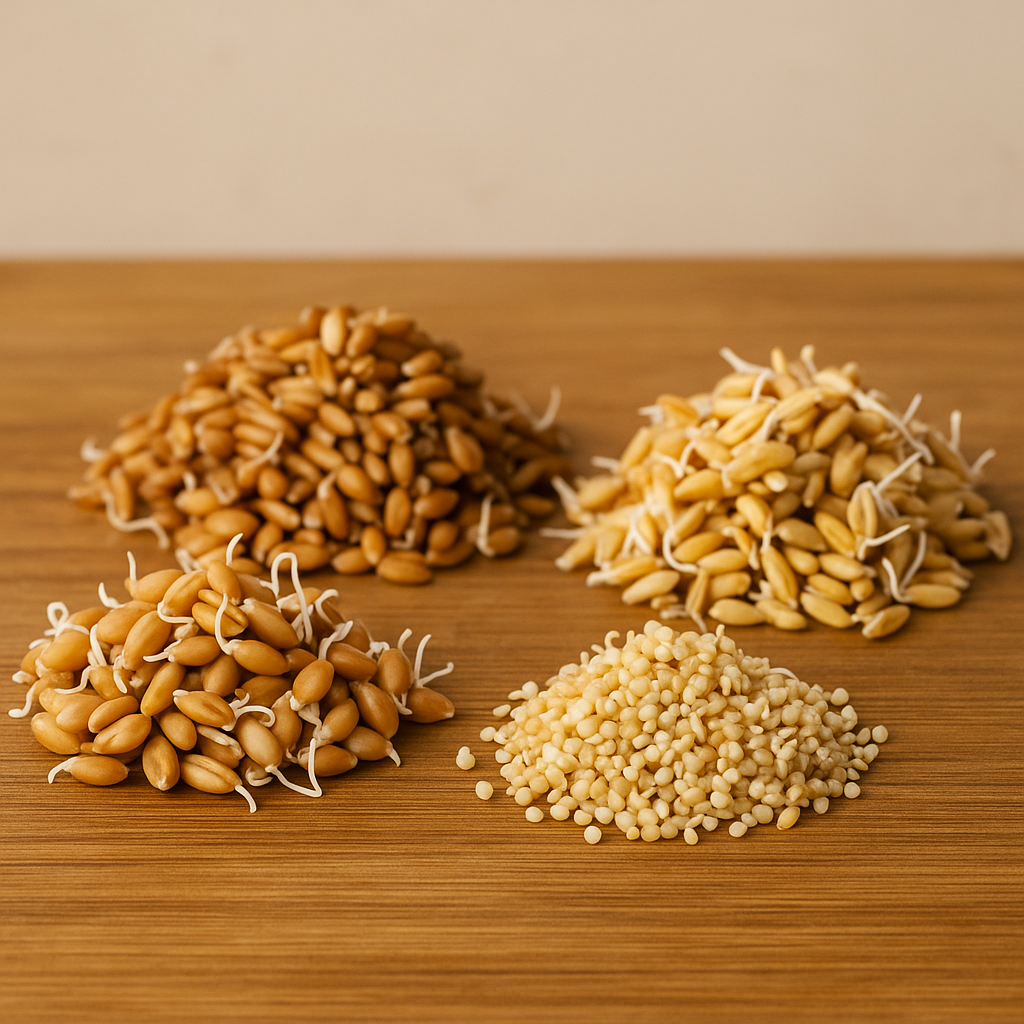News — nutrient absorption
The Nutritional Power of Sprouted Grains for Digestive Wellness
benefits of sprouted grains bloating relief digestive health enzyme-rich grains fiber-rich foods gluten sensitivity diet grain nutrition gut wellness microbiome support natural digestion aid nutrient absorption phytic acid reduction plant-based gut health prebiotic foods sprouted brown rice sprouted foods sprouted grains sprouted quinoa sprouted wheat whole grain benefits
In recent years, sprouted grains have stepped into the spotlight as a game-changing addition to a gut-friendly diet. Once a niche favorite of health food enthusiasts, these grains are now found in everything from bread and cereals to protein bars and supplements. What makes them stand out? It’s all about what happens during the sprouting process—a natural transformation that boosts nutrient availability and enhances digestibility.
As digestive wellness becomes a top priority for more people, sprouted grains are earning a reputation as the real MVPs of gut health. By unlocking enzymes, breaking down antinutrients, and making nutrients easier to absorb, sprouting turns ordinary whole grains into nutritional powerhouses. Whether you struggle with bloating, poor absorption, or simply want to eat more efficiently, sprouted grains might be the missing piece in your wellness puzzle.
The Role of Bitter Foods in Digestive Enzyme Production
appetite regulation arugula bile secretion bitter foods bitter taste receptors bitters and digestion culinary uses of bitters dandelion greens detoxification digestive bitters digestive enzyme production gentian root gut health herbal bitters kale microbiome support natural digestion support nutrient absorption pancreatic enzymes stomach acid stimulation
From leafy greens like arugula and dandelion to herbal favorites such as gentian root, bitter foods have long held a place in traditional diets and healing practices. Yet in today’s world of sweet and salty flavors, bitterness is often overlooked—even avoided. What many don’t realize is that bitter compounds do far more than challenge the palate: they play a critical role in stimulating digestive function.
One of the most fascinating aspects of bitter foods is their influence on digestive enzyme production. By activating bitter taste receptors not just on the tongue but also throughout the gastrointestinal tract, these foods can signal the body to release saliva, gastric juices, bile, and pancreatic enzymes—all essential for breaking down food efficiently. This article explores how bitter foods enhance digestive enzyme production, why that matters for gut health, and how to reintroduce them into a modern diet that has largely sidelined this powerful flavor profile.


